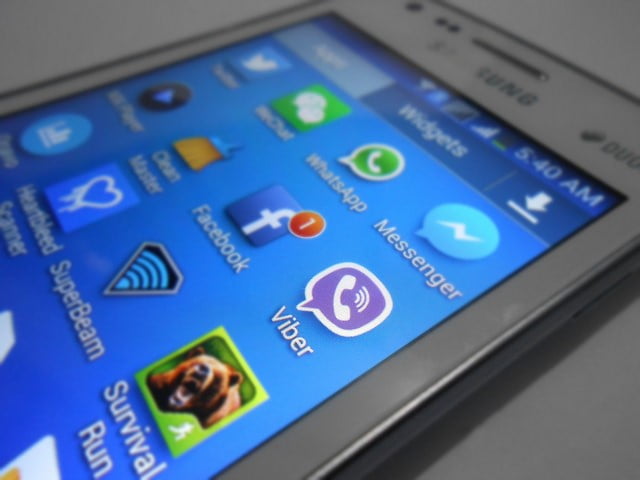Physical Address
304 North Cardinal St.
Dorchester Center, MA 02124
Physical Address
304 North Cardinal St.
Dorchester Center, MA 02124

When you’re visiting China for fun, you’ll probably have different plans than if you are here on an internship or to learn Chinese in China. Firstly, the length of your trip might be shorter–from a few days to a few weeks—whereas your internship might last anywhere from one month to a year or even your Summer Chinese Language Program Lasting from 2 to 12 weeks. Secondly, you might have a different budget, where you’re prepared to spend more money in a short amount of time for the sake of comfort, relaxation, and enjoyment than if you were hustling in China for work experience and little to no pay. Hence, we have compiled a list of essential apps for the China intern that, perhaps, a traveler might benefit from reading as well.
You do not need Chinese There are three levels of Chinese app you could need, depending on your Chinese level. The first is a Chinese phrase book with frequently needed phrases that you can either point to, or read aloud when necessary. We suggest: Learn Chinese – Mandarin Phrases and Lonely Planet Mandarin Phrasebook.
The second level you might need is a dictionary for finding specific words that you need. Popular dictionaries include: Pleco, Chinese English Dictionary, and Dianhua Dictionary.
Finally, the third level of Chinese you need is deciphering written language by either scanning characters with your phone camera or copying the character on your touch screen. WayGo is a great app for scanning and it should be noted that Pleco has both functions in its add-ons (not free).
Hailing taxis in China can be difficult, especially if you’re a foreigner. Language barriers, illiterate drivers, and scams are all possibilities. Luckily, taxi hailing apps have really taken off in China and if you haven’t got one already, you can set up an Uber account (Uber for android, Uber) in your home country using local payment methods and then use it China. You’ll still need to copy paste addresses and memorize a couple of key phrases, but at least the interface is in English. If you’re confident in your Chinese skills, you can also use Uber’s top competitor: Didi Chuxing, which also has a build-in service in WeChat (see #6).

If you don’t want to deal with the hassle of learning enough Chinese to use an app, or communicate with your driver in general, invest in a China Taxi-Book (32 cities covered). There are physical book versions of this, but they’re usually city-centric, whereas the app covers up to 32 different Chinese cities. The taxi book will have the most popular tourist destinations, shopping malls, and restaurants listed and you can just show your driver where you want to go—No Chinese necessary.
You probably have a map app installed in your phone right now, whether it be the build-in Apple Maps, Google Maps, or a third party GPS service. Note that Google Maps doesn’t function well in China due to the Great Fire Wall, so the best map app in China is the local Chinese version, Baidu Maps, which unfortunately doesn’t have any English. If you can figure it out by copy pasting addresses, the map can not only draw out a path for you, but it can also tell you how to take public transportation (bus, subway), or if it’s just too complex, it can hail a car for you too.
If you get a headache just looking at all the Chinese characters, you can still opt for English versions: ABCMaps, GPS My City Beijing/Shanghai, and China Metro Maps. We’re not sure how well they function in smaller cities, but they should be fine for first tier locations. If you don’t mind shelling a little cash, you can get OffMaps2 ($0.99), which will download and save maps for offline use (great when you’re Wifi dependent).
Air pollution in China is not limited to cities like Beijing, although the capital does seem to get the most news attention. Most cities have pollution at some point, but the real question long-term expats in China grapple with is: how bad is it? Download China Air Quality Index and check it daily to decide how much you should exert yourself outdoors, whether you need a mask, and whether you should just stay in and call it a rainy day.
Tourists probably would only need Viber and Skype for calling home from the hotel room, but interns are staying here longer and will make new acquaintances, or at least need to keep in touch with coworkers. For work and everything social, you’ll need WeChat for minimal engagement, and QQ if your company uses it internally. Both chat apps are widely used, although WeChat is definitely number one with all its extra services. With WeChat, you can leave voice messages, send location pins, share moments, call a taxi/didi car, scan a QR code at the convenience store and pay for goods, meet new people, make both video and voice calls, and so much more. QQ is primarily a chat, file sharing, and game platform, but can come in useful on a mobile platform if you’re meeting new people, using it for work, or just eager to explore.
For the lonely souls who don’t want everyone to know their WeChat ID when meeting new people, Tinder is widely popular in China, especially among foreigners and Chinese who speak English. The Chinese equivalent to Tinder would be Momo.

Remember the Great Wall of internet censorship? It blocks all those websites and apps you use on a daily basis, such as Google, Facebook, Instagram, Blogger, Tumblr, Youtube…
Are you dying yet? Worry not, all you need is a VPN to connect to another server (in another country) and trick everyone into thinking you’re not in China at the moment. Most (good) VPN services cost money, and you can buy a subscription for a day, a week, or a month if you’re desperate, but most people pay monthly or even annually. We recommend researching, selecting, and paying for your VPN service prior to entering China as the internet is not very reliable once you’re in. Try VPN Express, ExpressVPN (Google Play), and Vypr (Google Play), which all have free trial periods that will at least last you a day.
Free VPN services exist as well, but they’re not nearly as reliable and we cannot guarantee that they will work for you. Having said that, it seems RoboVPN is free.
Nihao, Expat Info Desk, Explore Beijing/Shanghai/Guangzhou/Shenzhen, Wow Shanghai, China Travel Guide, City Fu (Shanghai, Beijing, Guangzhou
Do you need advice on where to stay for the night while you hunt for that perfect short-term apartment, or where to eat in the neighborhood? Download TripAdvisor for a English reviews, and the Chinese version of Yelp, Dianping, if you can read Chinese.